In the 1850s a clergyman named Eilert Sundt toured Norway documenting living conditions throughout the country and publishing a journal called "Friend of the Poor". Scandinavians seem unique in their appreciation of the lives of ordinary people in their history. Not only the big cathedals and public buildings matter, but also the farmhouses and lofts.
Every city seems to have an "Open-Air Museum" where old farmhouses and rural structures are preserved in park-like settings.
The Norsk Folkemuseum in Oslo is Norway's largest and oldest of these collections. In addition to some 150 buildings, the museum has storytellers (such as the one pictured at the right) who play with children and show them old-fashioned games and toys Viking and Norwegian children had. This storyteller announced her arrival by sounding a horn that was long and thin like a broom.
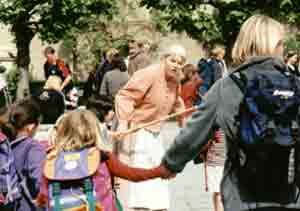 |
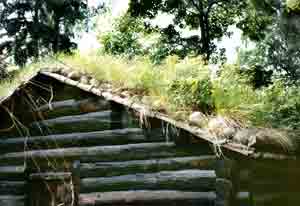 |
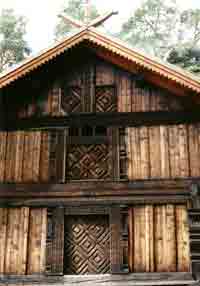
|
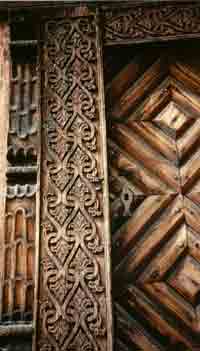 |
What did Norwegians do during those long, dark winter months? They carved a lot of wood. The doorpost on this loft from the 1750s shows the kind of craftsmanship that went into buildings.
There are at least two restored lofts in the collection dating from the 1300s. The Oslo Museum has buildings ranging from these to a 1928 gas station.
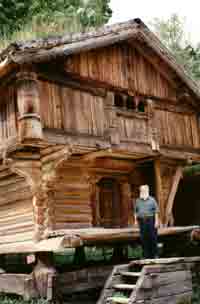 |